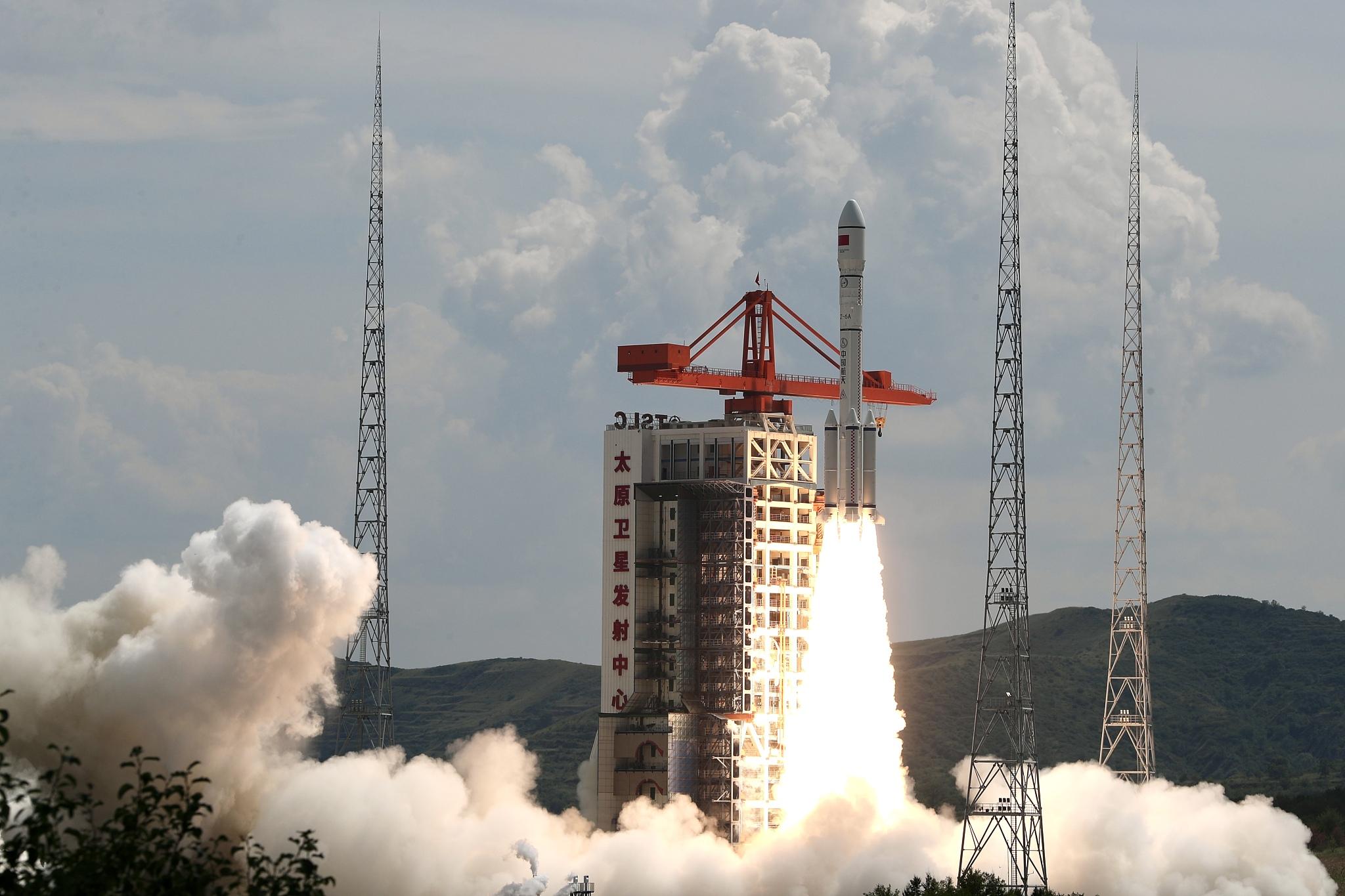
The first satellites for China’s ambitious G60 mega-constellation are in orbit in preparation for offering global satellite internet services—and we should worry about how this will help Beijing export its model of digital authoritarianism around the world.
The G60’s inaugural launch on 5 August 2024 carried 18 satellites into low-Earth orbit (LEO) on a Long March 6A rocket. Led by Shanghai Spacecom Satellite Technology and backed by the Shanghai Municipal Government, the project aims to compete in the commercial satellite internet market with SpaceX’s Starlink, providing regional coverage by 2025 and global coverage by 2027.
The G60 is one of three mega-constellations that China is planning, alongside the Guowang project, run by state-owned China Satellite Services, and the Honghu-3 constellation, led by Shanghai Lanjian Hongqing Technology Company. These constellations provide the infrastructure to support China’s rapidly growing commercial space sector, including its satellite internet initiatives which are making rapid advances.
China launched the world’s first 6G test satellite into LEO in January. GalaxySpace recently made headlines by deploying satellite internet services in Thailand, the first time Chinese LEO satellite internet had been deployed overseas. In June, the Chinese company OneLinQ launched China’s first civilian domestic satellite internet service, indicating it would expand through countries that had signed up to China’s Belt and Road Initiative.
Yet through these efforts, China is not only securing its position in the satellite internet market but laying the groundwork for expanding its digital governance model far beyond its borders.
Central to China’s ambition is the concept of cyber sovereignty—the notion that each nation has the right to govern its digital domain. In practice, China has used this principle to build a heavily censored surveillance system supporting the Chinese Communist Party’s power, widely condemned for violating human rights.
China’s satellite internet services would enable other governments to adopt similar practices, as the nature of satellite internet makes it susceptible to state control.
Satellite internet is more controllable due to its centralised infrastructure, where data is routed through a limited number of ground stations or gateways. This enables censorship and surveillance as service providers and authorities can more easily monitor, block and filter content.
In contrast, traditional internet infrastructure relies on a decentralised network of sub-sea cables and terrestrial networks managed by many stakeholders with thousands of data exchange points. This decentralised structure makes it difficult for any entity to exert complete control over the flow of information, as countries such as Russia — which initially welcomed the open internet, unlike China or North Korea—have learned.
Countries that use China’s satellite internet service providers could more easily control what information is accessible within their borders, much as the Great Firewall of China operates domestically. This could mean blocking politically sensitive topics, monitoring user activity, or shutting down the internet during unrest. While satellite internet has often been hailed as a means for dissidents and activists to bypass restrictive governments, the reality under China’s model, which would place it in the hands of nation-states, would be starkly different.
China is already exporting its digital authoritarianism through such initiatives as the Digital Silk Road, providing technologies and governance models that enable censorship, surveillance and social control to other countries. These efforts come amid a rise in the global spread of authoritarianism as governments seek to exert control over online spaces. Adopting Chinese satellite internet services would accelerate this trend, empowering other countries to implement similar controls and restrict human rights globally.
Offering satellite internet worldwide has other benefits for Beijing. Countries relying on China’s infrastructure for connectivity may risk being pressured to comply with Beijing’s demands, including censoring content critical of China, sharing sensitive data or suppressing domestic dissent in China’s interests. For example, a journalist in a country that relies on China’s satellite internet services might find his or her connection reduced or severed when reporting human rights abuses in China.
The centralised nature of satellite internet may also make countries more vulnerable to cyber espionage by the Chinese government or malicious actors. Chinese satellite providers may also be subject to China’s stringent data localisation policies, such as the Cybersecurity Law, which requires companies to store data within China and make it accessible to the Chinese government. As China’s satellite projects are intended to provide global coverage, the data of international users—spanning communication, location, and internet activity—would be subject to Chinese data laws. Chinese authorities could potentially access any data transmitted through Chinese satellite internet services.
The global deployment of China’s internet satellite services is still some way off and faces significant challenges. However, if China’s satellite internet services are adopted, the world may witness the rise of a new digital Iron Curtain extending from space, dividing the free flow of information and imposing state control on a global scale.